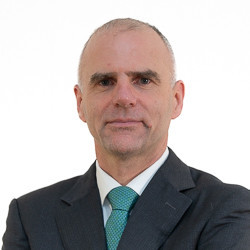Turkey
The Context
Türkiye is an upper-middle-income country with a population of 82.89 million and gross national income per head of US$9,127 in 2019. The rural population is 24.8 per cent of the total and continues to decline by 2018.
As the economy developed, the proportion of the population living below the national poverty threshold slumped from 23.8 per cent to 21.2 per cent in 2010-2018 period, according to data provided by the Turkish Statistical Institute. The World Bank estimated that the poverty headcount ratio at $5.50 a day was at 9.2 per cent in 2018 and that there had been a consistent decline in poverty rates. However, pockets of poverty remain, particularly in the uplands.
Türkiye has a young population. In rural areas, 64 per cent of people are under 50 and lack of rural employment contributes to out-migration. The employment in agriculture decreased from 23 per cent to 18.3 per cent in the past decade. Nationwide unemployment rate rose to over 13 percent in 2019 and 2020 from 10 percent level in 2018 because of economic downturn.
According to Investment Office, Türkiye has a robust agriculture and food industry that employed almost 20 percent of the country’s working population and that accounted for 5.8 percent of the country’s GDP in 2018. The sector’s financial contribution to the overall GDP was USD 42.5 billion in 2018. Although the weight of agricultural sector in Turkish economy is steadily declining, Türkiye remains the world’s seventh-largest agricultural economy and farming is crucial to rural development, employment, exports and much of manufacturing.
Türkiye is a regional hub for the production, processing and export of food to large European and Middle Eastern markets. This gives the sector excellent potential, but investment is needed to help farmers update production techniques, boost productivity and cope with climate change.
The Strategy
IFAD and Türkiye jointly developed a Results-based Country Strategic Opportunities Paper (RB-COSOP) for 2016-2021.
In Türkiye, IFAD loans contribute to the reduction of rural poverty in the upland areas of the country.
Activities use targeting, gender and community empowerment, innovations for scaling up, and partnership building as main principles of engagement.
Projects and programmes help farmers, especially those short of resources, move from subsistence to more commercial farming. With support, farmers can improve the quality and consumer appeal of their products, and make farming a viable business.
Two key strategic objectives guide ongoing and future IFAD engagement in Türkiye:
- enhancing access to markets for productive poor small farmers; and
- making sustainable natural resource management mainstream in agricultural production while enhancing climate resilience in uplands.
Country Facts
Türkiye is the 18th largest economy in the world, and the world’s seventh largest agricultural producer.
About 64 per cent of the rural population is aged under 50, despite a growing trend of rural outmigration.
Agriculture is no longer Türkiye's main driver of economic growth, but remains vital to rural development, employment, exports and manufacturing.
Since 1982, IFAD has invested a total of US$189 million in 10 projects and programmes in Türkiye, benefiting more than 1,389,000 households. With the 11th project the investment will add up to US$230 million and number of impacted households rise to about 1,500,000.

